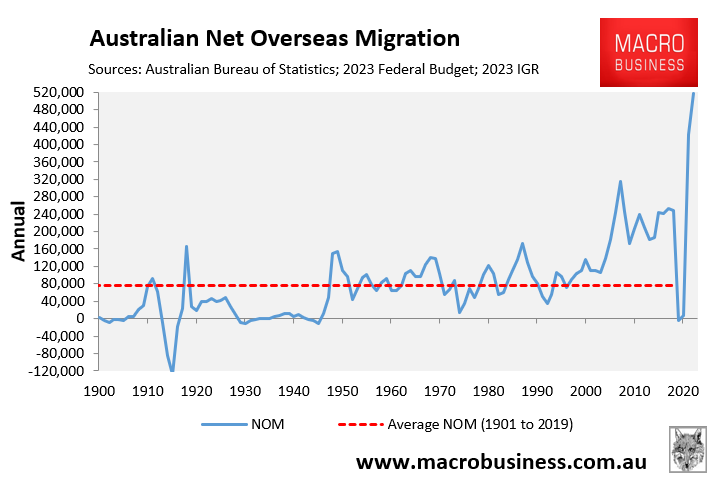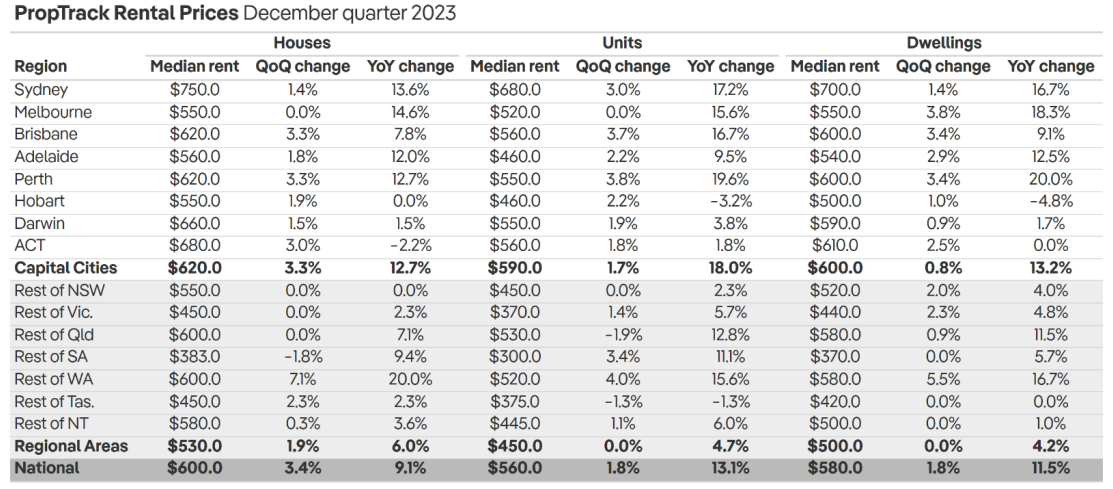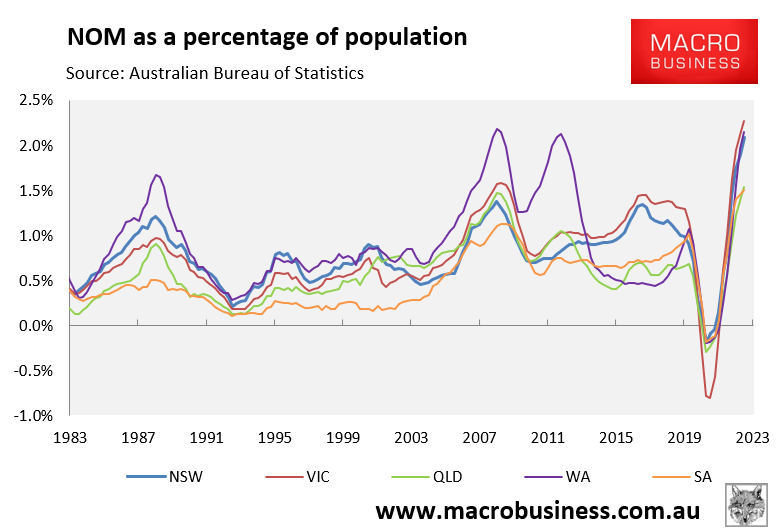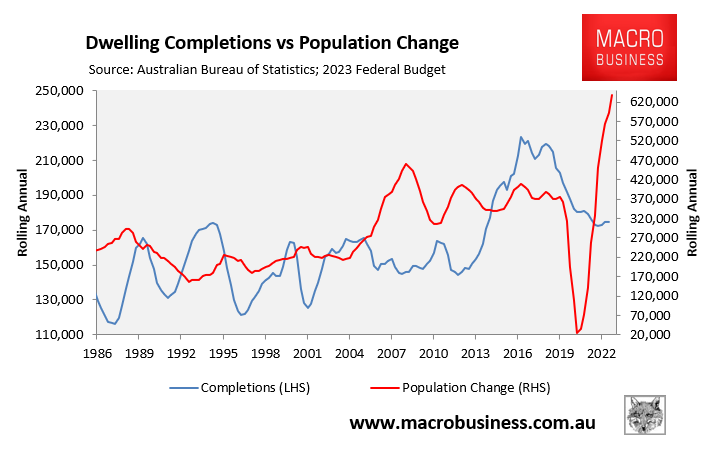The dramatic impact of the historic increase in net overseas migration on Australia’s rental markets has been exposed by the latest rental price data from PropTrack.
Australia’s net overseas migration rose by a record 518,000 in 2022-23, which was around 200,000 higher than the previous record high in 2008:

Rental prices nationally rose by 11.5% in the 2023 calendar year, according to PropTrack, driven by the combined capital cities (13.2%).
Perth (20%), Melbourne (18.3%) and Sydney (16.7%) led capital city rental growth in 2023, followed by Adelaide (12.5%) and Brisbane (9.1%):

Source: PropTrack
Not surprisingly, these three markets – i.e. NSW (2.1%), Victoria (2.3%) and NSW (2.1%) – experienced the strongest growth in net overseas migration (NOM) when measured against population size, followed by South Australia (1.5%) and Queensland (1.5%):

To nobody’s surprise, the flood of overseas migrants is directly juicing rental demand and price growth.
Commenting on the results, PropTrack noted that “rental markets are extremely challenging for renters, with rents continuing to grow very quickly across much of the country amid strong demand and very low vacancy rates”.
“Rents are growing at double-digit rates in many capitals, with Sydney, Melbourne and especially Perth renters facing very strong growth”.
“As we head into what is typically the busiest time of year for rental markets in January, renters will, unfortunately, continue to face growing rents”, PropTrack predicts.
Given that Australia’s population is expected to rise at an historically fast pace in 2024 at the same time as dwelling construction rates are falling, rental vacancy rates will remain tight and rental inflation strong.

Renters will inevitably respond to the shortage by moving into group housing to spread the cost among more people.

